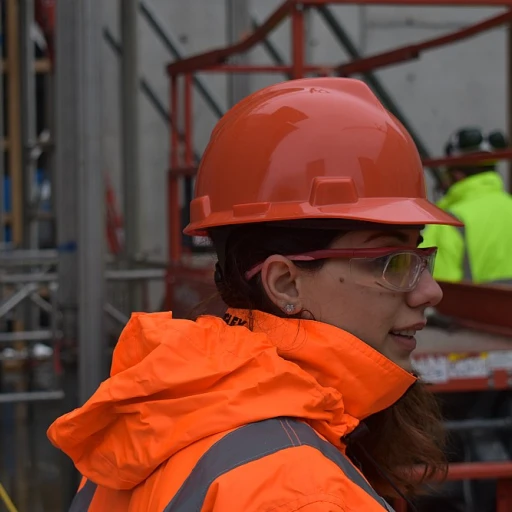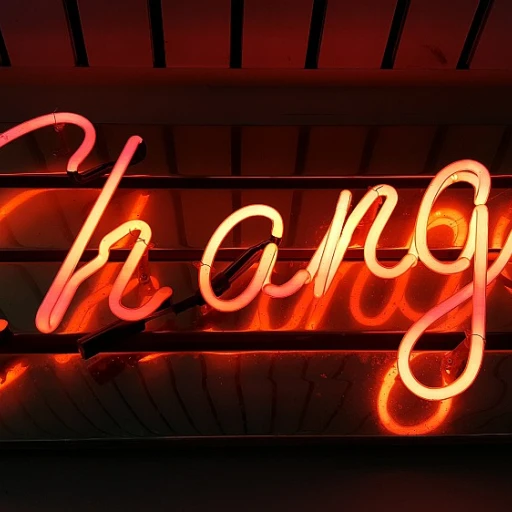
Defining sourced and recruiter sourced in the context of AI
Clarifying Sourced and Recruiter Sourced in Modern Recruitment
In the world of talent acquisition, understanding the difference between "sourced" and "recruiter sourced" candidates is essential for anyone involved in the hiring process. Both terms relate to how potential candidates are identified and engaged, but the methods and tools used can differ significantly, especially as artificial intelligence (AI) becomes more integrated into recruitment strategies.
"Sourced" candidates typically refer to individuals found through proactive search methods. This involves using data-driven approaches, such as searching LinkedIn, social media, job boards, and other online platforms, to identify talent that may not have directly applied for a job. AI-powered sourcing tools can automate much of this process, scanning vast talent pools to find profiles that match specific job requirements. These tools can also help build a robust talent pipeline by continuously searching for qualified candidates, even when there are no immediate openings.
On the other hand, "recruiter sourced" candidates are those identified and engaged directly by recruiters or sourcer recruiters. This approach relies more on the expertise, intuition, and personal networks of recruiters, who use their knowledge of the company, the role, and the market to find and connect with top talent. Recruiter sourced candidates often benefit from a more personalized approach, as recruiters tailor their outreach and communication to attract the best fit for the organization.
Both sourcing strategies play a vital role in the recruitment process. The integration of AI in sourcing is reshaping how companies find and engage talent, making it possible to reach passive candidates and expand the talent pool beyond traditional methods. However, the human touch provided by recruiters remains crucial for building relationships and ensuring a positive candidate experience throughout the hiring process.
For a deeper understanding of how AI-driven HR practices are influencing the broader landscape, including the differences between layoffs and reductions in force, you can explore this resource on AI-driven HR and workforce changes.
- AI sourcing tools can scan thousands of profiles in seconds, helping recruiters find qualified candidates faster.
- Recruiter sourced candidates often result from targeted outreach and relationship-building, which can be key for hard-to-fill roles.
- Combining both approaches can help companies fill jobs more efficiently and build a stronger talent pipeline.
How AI is changing candidate sourcing
AI’s Impact on Modern Candidate Sourcing
Artificial intelligence is transforming how companies search for and find top talent. Traditionally, recruiters and sourcer recruiters would manually scan resumes, browse LinkedIn profiles, and post jobs on various job boards. Now, AI-powered tools are automating and optimizing much of the sourcing process, making it easier to identify qualified candidates from a vast talent pool.
AI-driven sourcing technologies analyze large volumes of data from social media, job boards, and internal databases. These systems can quickly match job requirements with potential candidates, even surfacing passive candidates who may not be actively looking for a new job. This shift is helping recruiters and hiring managers fill open roles faster and with greater accuracy.
- Automated candidate search: AI tools scan thousands of profiles and resumes, ranking candidates based on skills, experience, and fit for the job.
- Enhanced sourcing strategies: Machine learning algorithms suggest the best channels and sourcing strategies to reach the right talent, whether through LinkedIn, niche job boards, or social media.
- Improved talent pipeline: AI helps build and maintain a dynamic talent pipeline, ensuring a steady flow of qualified candidates for current and future recruitment needs.
- Reduced time to hire: By automating repetitive tasks, AI allows recruiters to focus on engaging with candidates and refining the hiring process.
These advancements are not just about speed. AI also brings a data-driven approach to sourcing, helping companies make more informed decisions and reduce bias in the recruitment process. As AI continues to evolve, it’s clear that the role of recruiters is shifting from manual sourcing to strategic talent acquisition and relationship building.
For a deeper look at how technology is transforming HR processes, you can explore how leading ASO solutions are transforming HR processes.
Benefits and challenges of AI-powered sourcing
Unlocking Efficiency and Scale in Candidate Sourcing
AI-powered sourcing is reshaping how recruiters and sourcer recruiters approach the search for top talent. By leveraging advanced algorithms, machine learning, and data-driven insights, companies can now scan vast talent pools across job boards, social media, and platforms like LinkedIn. This automation accelerates the process of finding qualified candidates, especially passive candidates who may not be actively seeking a new job but fit the company’s requirements.
Advantages of AI in the Sourcing Process
- Speed and Efficiency: AI tools can analyze thousands of profiles in seconds, reducing time-to-fill and allowing recruiters to focus on engaging with the best candidates.
- Data-Driven Decisions: AI evaluates candidates based on skills, experience, and cultural fit, minimizing bias and improving the quality of candidate sourcing.
- Wider Talent Pool: Automated sourcing strategies help recruiters find potential candidates beyond traditional channels, tapping into diverse and global talent pools.
- Enhanced Talent Pipeline: AI continuously updates and nurtures the talent pipeline, ensuring a steady flow of qualified candidates for current and future hiring needs.
Challenges and Considerations in AI-Driven Recruitment
- Data Quality and Integration: The effectiveness of AI depends on the quality of data from sources like job boards, social media, and internal databases. Inaccurate or incomplete data can lead to missed opportunities or unsuitable matches.
- Bias and Fairness: While AI can reduce human bias, it can also perpetuate existing biases if not carefully monitored. Regular audits and transparent algorithms are essential to ensure fair recruitment practices.
- Human Touch: Despite automation, the recruitment process still requires human judgment. Building relationships with candidates and understanding their motivations remain critical for successful hiring.
- Change Management: Implementing AI in talent acquisition demands training and buy-in from hiring managers and recruiters. Clear communication about the benefits and limitations of AI is key to adoption.
For a deeper dive into how artificial intelligence is transforming the role of people managers and recruiters, check out this resource on AI's impact on HR management.
The evolving role of recruiters with AI tools
Redefining the Recruiter’s Value in the Age of AI
With artificial intelligence becoming a core part of the recruitment process, the role of recruiters is shifting. Instead of spending hours manually searching job boards, LinkedIn, and social media to source candidates, recruiters now leverage AI tools to automate repetitive tasks and analyze large volumes of data. This transformation allows recruiters to focus on what they do best: building relationships, understanding company culture, and assessing the soft skills that algorithms can’t fully capture.
Collaboration Between Recruiters and AI
AI-powered sourcing tools can quickly scan talent pools, identify qualified candidates, and even predict which passive candidates might be open to new opportunities. However, these tools are most effective when combined with the expertise of a skilled recruiter. Recruiters interpret AI-generated insights, tailor sourcing strategies, and ensure that the best candidates are engaged throughout the hiring process. This partnership enhances the ability to fill roles faster and with better matches for the company’s needs.
- Efficiency: Recruiters can spend more time on high-value tasks, such as interviewing and negotiating offers, rather than on manual candidate sourcing.
- Personalization: AI can suggest potential candidates, but recruiters personalize outreach and nurture relationships, which is crucial for attracting top talent.
- Strategic Talent Acquisition: With AI handling data-heavy tasks, recruiters can focus on long-term talent pipeline development and strategic workforce planning.
New Skills and Mindsets for Recruiters
As AI becomes more integrated into sourcing recruiting, recruiters are expected to develop new skills. Understanding how to interpret AI data, adapt sourcing strategies, and use digital tools effectively is now part of the job. Recruiters also need to stay informed about evolving best practices in talent sourcing and be proactive in learning about new technologies that impact the recruitment process.
Ultimately, AI is not replacing recruiters but empowering them to be more effective. The best results come from a blend of technology and human judgment, ensuring that companies find and hire the right talent in an increasingly competitive market.
Key considerations for implementing AI in sourcing
Critical Factors for Successful AI Integration in Sourcing
When companies decide to implement artificial intelligence in their candidate sourcing and recruitment process, several key considerations can make or break the success of the initiative. AI has the potential to transform how recruiters and sourcer recruiters find and engage talent, but it is not a plug-and-play solution. Here are some important aspects to keep in mind:
- Data Quality and Management: AI tools rely on large volumes of accurate, up-to-date data. This includes candidate profiles from LinkedIn, job boards, social media, and internal talent pools. Inconsistent or outdated data can lead to poor recommendations and missed opportunities to source qualified candidates.
- Bias and Fairness: AI systems can unintentionally reinforce existing biases in the recruitment process if not carefully monitored. Regular audits and transparent algorithms are essential to ensure fair candidate sourcing and to avoid discrimination in hiring decisions.
- Integration with Existing Systems: For AI to enhance the sourcing process, it must work seamlessly with current applicant tracking systems, CRM platforms, and other recruitment tools. Poor integration can slow down the hiring process and frustrate recruiters and hiring managers.
- Recruiter Training and Adoption: Even the best AI-powered sourcing strategies require buy-in from recruiters. Training is crucial so that talent acquisition teams understand how to use AI tools effectively and can interpret AI-driven insights to find top talent.
- Candidate Experience: Automated sourcing should not come at the expense of the human touch. Companies need to balance efficiency with personalization, ensuring that potential candidates feel valued throughout the recruitment process.
- Compliance and Privacy: Handling candidate data comes with legal responsibilities. Organizations must comply with data protection regulations and be transparent about how candidate information is used in sourcing and recruiting activities.
Measuring Success and ROI
To ensure that AI delivers value in sourcing candidates, companies should define clear metrics. These might include time to fill, quality of hire, diversity of the talent pipeline, and recruiter productivity. Regularly reviewing these metrics helps organizations refine their sourcing strategies and maximize the benefits of AI in talent acquisition.
Future trends in AI-driven sourcing for HR
Emerging Technologies Reshaping Talent Sourcing
AI-driven sourcing is evolving rapidly, bringing new technologies and strategies to the recruitment process. Automation is now central to how recruiters search for and find potential candidates. Tools that leverage machine learning and natural language processing are helping companies build stronger talent pipelines by analyzing vast amounts of data from job boards, social media, and platforms like LinkedIn. These solutions not only speed up the sourcing process but also help identify passive candidates who might not be actively looking for a job but are a great fit for open roles.
Personalization and Candidate Experience
Personalization is becoming a key trend in AI-powered recruiting. Advanced algorithms can tailor communication and job recommendations to each candidate, improving engagement and increasing the chances of attracting top talent. This shift is changing how sourcer recruiters and hiring managers interact with candidates, making the process more candidate-centric and efficient. As a result, companies can fill positions faster and with more qualified candidates.
Data-Driven Decision Making
The use of data analytics in talent sourcing is expanding. Recruiters now rely on data to refine sourcing strategies, assess the effectiveness of different channels, and optimize the recruitment process. This data-driven approach helps companies find the best candidates and build a more diverse talent pool. It also supports better collaboration between recruiters, hiring managers, and talent acquisition teams, ensuring that sourcing efforts align with business goals.
Ethical Considerations and Bias Mitigation
As AI becomes more integrated into sourcing recruiting, there is a growing focus on ethical considerations. Organizations are investing in technologies that help reduce bias in the hiring process and ensure fairness for all candidates. Transparent algorithms and regular audits are becoming standard practices to maintain trust and credibility in AI-powered recruitment.
Continuous Learning and Adaptation
The future of AI in candidate sourcing will require recruiters and sourcers to continuously learn and adapt. As new tools and platforms emerge, staying updated on best practices and evolving sourcing strategies will be essential. Companies that invest in training their teams and embracing innovation will be better positioned to attract and retain top talent in a competitive market.
- AI will further automate repetitive tasks, freeing up recruiters to focus on relationship-building.
- Integration with more data sources will enhance the ability to source candidates from diverse backgrounds.
- Personalized candidate experiences will become a standard expectation in the hiring process.
- Ongoing attention to ethics and bias will be critical for maintaining a fair recruitment process.













